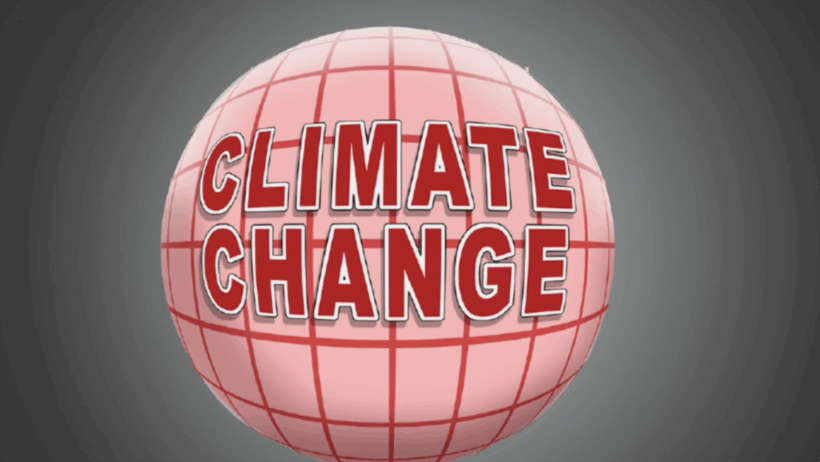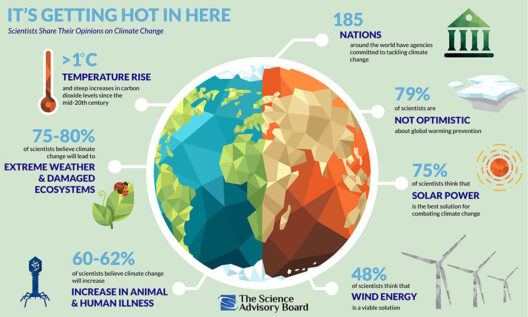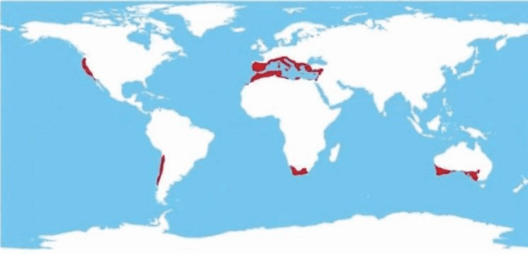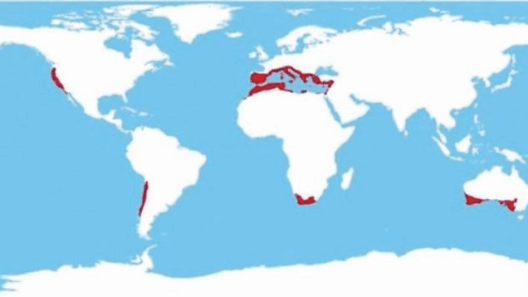Climate change has emerged as a pivotal issue in contemporary discourse, provoking intense debate and division. The query—”Is climate change a hoax?”—captures a prevalent sentiment that oscillates between skepticism and scientific consensus. To unravel this complex tapestry, we must explore not merely the empirical evidence supporting climate change, but also the psychological and sociopolitical factors that fuel disbelief and apprehension.
At its core, climate change refers to significant alterations in global temperatures and weather patterns over time. While such changes are often natural, the current rampant acceleration is primarily attributable to anthropogenic activities, particularly the combustion of fossil fuels. The Intergovernmental Panel on Climate Change (IPCC) reports unequivocally indicate rising global temperatures linked to heightened greenhouse gas emissions. However, many continue to discount these findings, prompting an exploration into the roots of this hesitance.
To begin, it is essential to recognize the profound psychological distortions that color perceptions of climate change. Cognitive dissonance arises when individuals confront information that conflicts with their beliefs or behaviors. For instance, acknowledging the reality of climate change necessitates an unsettling introspection regarding lifestyles, economic practices, and even personal values. As a result, some may dismiss the notion of climate change as a hoax, seeking solace in conspiracy theories that renounce established scientific consensus. This defense mechanism illustrates how the human psyche grapples with uncomfortable truths.
Moreover, the socio-political landscape plays a critical role in shaping perceptions of climate change. Public opinion is frequently influenced by the partisan divide prevalent in many countries, particularly in regions like the United States. Political affiliation has become a significant predictor of beliefs surrounding climate issues. Social identity theory posits that individuals derive a portion of their self-concept from group affiliations; thus, alliance with anti-climate change factions can bolster one’s social standing within specific communities. Consequently, the rejection of climate science often intertwines with broader ideological narratives that prioritize economic growth over environmental sustainability.
This preference for economic expansion over ecological stewardship reveals a deeper underlying concern: the fear of losing jobs, traditional ways of life, and perceived freedoms. In regions heavily reliant on fossil fuels, the transition to renewable energy sources may be viewed as a direct threat to livelihoods. Thus, the skepticism surrounding climate change can be understood as a desperate clinging to a familiar socio-economic identity. This highlights the urgent need for innovative policies that embrace a just transition, balancing ecological imperatives with socio-economic realities.
Another layer to this debate involves the manipulation of information and the propagation of misinformation. With the rise of social media platforms, misleading narratives about climate change can spread rapidly, engendering confusion and skepticism among the populace. Propagandistic rhetoric shields vested interests, often linked to fossil fuel industries, which portray climate action as an affront to freedom or economic stability. Such misconstructions not only stifle meaningful discourse but also undermine the urgency required to address the escalating crisis.
It is imperative to delineate between legitimate skepticism grounded in scientific inquiry and disingenuous dismissal based on fear, politics, or misinformation. Scientific literacy is crucial for deciphering the complexities of climate data and understanding the broader implications of climate change. Education plays an invaluable role in combating ignorance and fostering informed discourse surrounding this urgent issue. By empowering individuals with knowledge, we can dispel myths that catalyze skepticism while highlighting the irrefutable evidence that underscores the reality of climate change.
Transitioning to empirical evidence, we find that climate change is not simply relegated to abstract future scenarios; rather, it is a present reality manifesting through unprecedented natural disasters, shifting ecological patterns, and deteriorating public health. The increasing frequency and intensity of hurricanes, wildfires, and floods serve as visceral reminders of the consequences of inaction. Such events not only wreak havoc on ecosystems but also devastate communities, leading to displacement and economic turmoil. Thus, the stakes are not just theoretical; they are tangibly present in the lives of individuals across the globe.
Furthermore, the repercussions of climate change extend beyond environmental degradation and into the realm of social justice. Marginalized communities—often least responsible for emissions—bear the brunt of climate impacts. This inequity exacerbates existing disparities and underscores the moral imperative for addressing climate change. Navigating this multifaceted landscape necessitates an understanding that effective solutions must acknowledge these disparities while fostering resilience and adaptation among vulnerable populations.
In conclusion, the assertion that climate change is a hoax stands in stark opposition to the comprehensive body of scientific evidence affirming its existence and severity. Rather than dismissing concerns, it is essential to foster a constructive dialogue that addresses the psychological, political, and social dimensions of climate skepticism. Acknowledging the fear, confusion, and misinformation that fuel denial allows for a more nuanced understanding of the issue. The defining crisis of our time requires collective action, grounded in empathetic discourse and robust scientific engagement, to enact transformative change guided by sustainability and equity.
The question remains not only whether climate change is a hoax but also how society can overcome the obstacles that inhibit action. Those engaged in environmental advocacy must prioritize education, transparency, and collaboration to galvanize collective efforts. Ultimately, embracing the reality of climate change is not only an acknowledgment of scientific truth; it represents a moral and ethical obligation to future generations, ensuring a livable planet for all.








